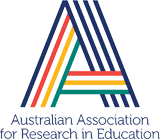The Social Justice SIG is pleased to announce the launch of its upcoming Social Justice Seminar Series, designed to provide international, interdisciplinary, and intersectional insight on addressing inequities, advocating for marginalized communities, and promoting inclusive practices within the context of education. We invite you to join us in this timely discussion from key experts in the field.
Schedule:
Session 1 - in collaboration with Children and Student Voices Across All Sectors SIG - Dr Angelique Howell (Postdoctoral Research Fellow, School of Teacher Education and Leadership, Queensland University of Technology)
- Focus: Social justice through Youth-Adult Participatory Action Research
- Fri 24th May, 2pm to 3pm AEST
- Online via Zoom
Session 2 - Professor Sherry Marx (Professor of ESL, Multicultural Education, and Qualitative Methods, Utah State University)
- Focus: Social justice and equity through research methods
- Fri 21 June 2024, 11am to 12pm AEST
- Online via Zoom
Session 3 - Professor Gregory Noble (Professor at the Institute for Culture and Society, Western Sydney University)
- Focus: Social justice and doing diversity differently
- Fri 2 August 2024, 10am to 11am AEST
- Online via Zoom
Session 4 - Associate Professor Christina Ho (Associate Professor in Social and Political Sciences, University of Technology, Sydney)
- Focus: Asian Australian education cultures, Australian multiculturalism and social justice
- Fri 27 September 2024, 1pm to 2pm AEST
- Online via Zoom
Session 5 - Professor Tracey Bunda (Professor of Indigenous Education, Aboriginal and Torres Strait Islander Studies Unit, The University of Queensland)
- Focus: First Nations representation and storying research in education
- Monday 28 October 2024, 4pm to 6pm AEST
- Blended in-person and over Zoom (event registration with venue details and Zoom link will be sent out closer to the date)
Session 6 - Professor Arathi Sriprakash (Professor of Sociology and Education, University of Oxford)
- Focus: Restorative justice and the racial politics of education
- Wednesday 12th February 2025, timing TBC
- Blended in-person and over Zoom (event registration with venue details and Zoom link will be sent out closer to the date)
Registration:
Please register via the links provided for sessions 1 to 4. Further details for sessions 5 and 6 will be provided in the near future.
Feel free to extend this invitation to interested colleagues. Should you have any questions or require further information, please contact Aaron Teo (aaron.teo@unisq.edu.au). Look forward to seeing you there!
